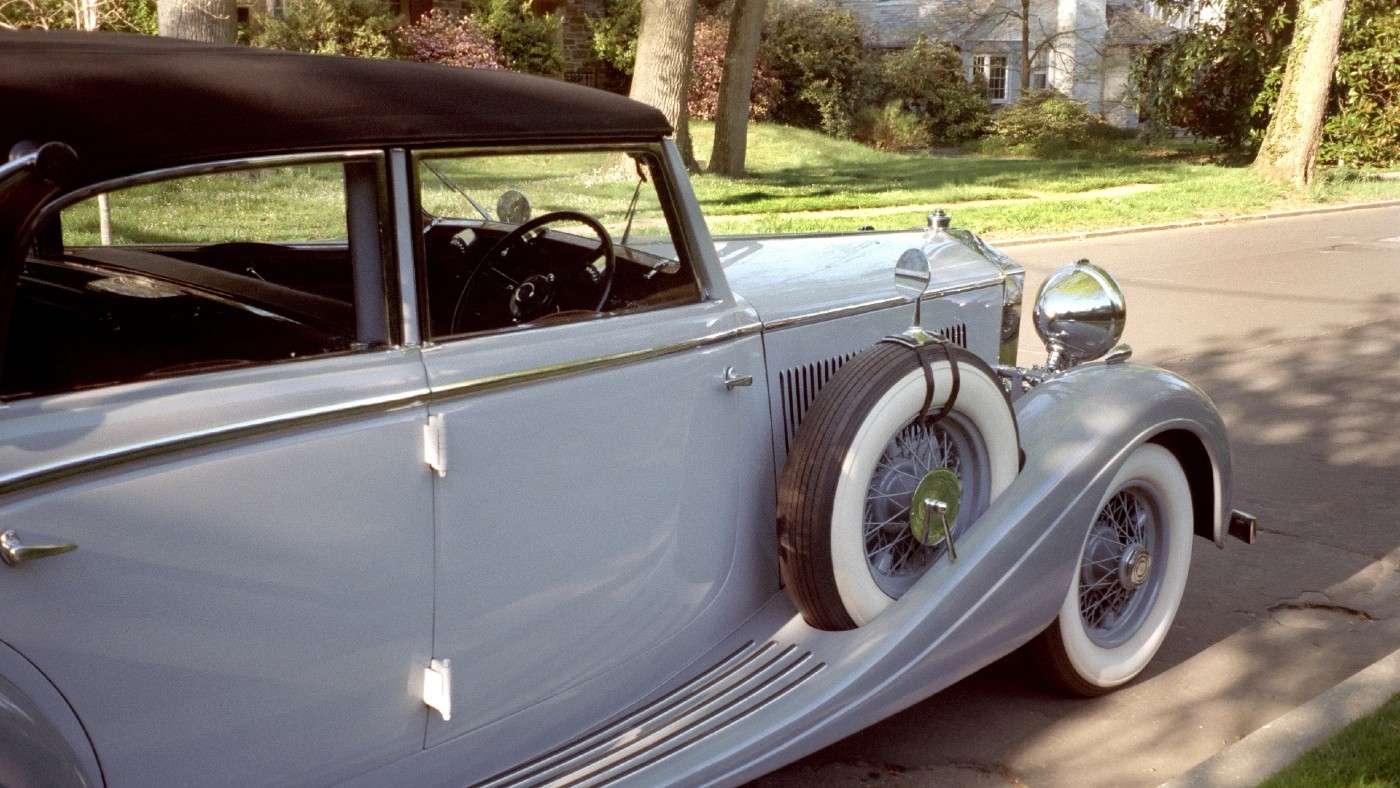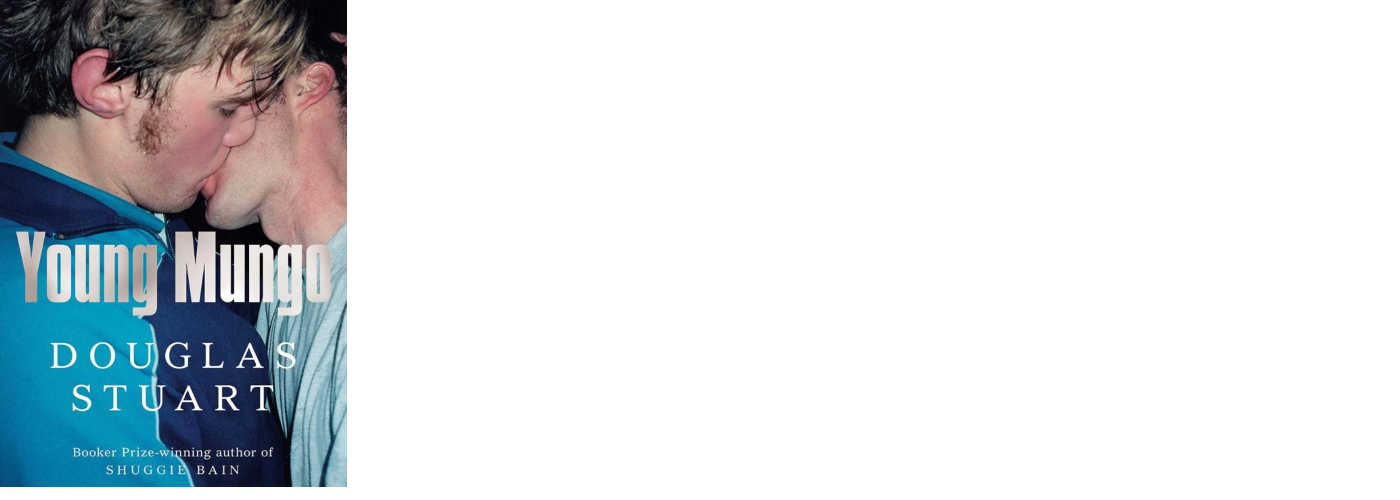The Car by Bryan Appleyard: an ‘entertainingly forthright history’
Appleyard sets out to document a way of life that he believes is vanishing

A free daily email with the biggest news stories of the day – and the best features from TheWeek.com
You are now subscribed
Your newsletter sign-up was successful
Douglas Stuart’s debut, Shuggie Bain – the winner of the 2020 Booker Prize – was a “bleak autobiographical novel about a young boy caring for his alcoholic mother in 1980s Glasgow”, said Johanna Thomas-Corr in The Sunday Times. His follow-up is “cut from the same cloth”.
Fifteen-year-old Mungo lives with his mother and two older siblings in Glasgow’s East End. “His brother, Hamish, is a Faginesque Protestant gang leader; his sister, Jodie, is a do-gooding fallen angel; and their mother, Mo-Maw, is a woman ruined by alcohol.” As the novel opens, Mungo is shooed off by his mother on a fishing trip with two menacing strangers from her Alcoholics Anonymous group, who promise to teach him “masculine pursuits”.
Interspersed with this “gruesome excursion” are chapters set a few months earlier, detailing Mungo’s first love affair, with a Catholic neighbour called James. Although this “alternating timeline” feels forced at times, this is still a “richly abundant” work packed with fine writing and “colourful characters”.
The Week
Escape your echo chamber. Get the facts behind the news, plus analysis from multiple perspectives.

Sign up for The Week's Free Newsletters
From our morning news briefing to a weekly Good News Newsletter, get the best of The Week delivered directly to your inbox.
From our morning news briefing to a weekly Good News Newsletter, get the best of The Week delivered directly to your inbox.
It may be felt – with some justification – that Stuart has written the same book twice, said Nikhil Krishnan in The Daily Telegraph. Yet he “makes small differences count”. Because Mungo is older than Shuggie, he is able to see in his sexuality “not just a source of difference and alienation, but a possible route to escape and emancipation”. And Stuart widens his focus beyond family life, taking in the “Jets and Sharks world” of Glasgow’s sectarian politics.
Like its predecessor, this “bear hug of a new novel” has a “yeasty whiff of the autobiographical” about it, said Hillary Kelly in the Los Angeles Times. If you adored Shuggie Bain, this book “will please you on every page”.
Picador 400pp £16.99; The Week bookshop £13.99

The Week Bookshop
A free daily email with the biggest news stories of the day – and the best features from TheWeek.com
To order this title or any other book in print, visit theweekbookshop.co.uk, or speak to a bookseller on 020-3176 3835. Opening times: Monday to Saturday 9am-5.30pm and Sunday 10am-4pm.
-
 How the FCC’s ‘equal time’ rule works
How the FCC’s ‘equal time’ rule worksIn the Spotlight The law is at the heart of the Colbert-CBS conflict
-
 What is the endgame in the DHS shutdown?
What is the endgame in the DHS shutdown?Today’s Big Question Democrats want to rein in ICE’s immigration crackdown
-
 ‘Poor time management isn’t just an inconvenience’
‘Poor time management isn’t just an inconvenience’Instant Opinion Opinion, comment and editorials of the day
-
 Bad Bunny’s Super Bowl: A win for unity
Bad Bunny’s Super Bowl: A win for unityFeature The global superstar's halftime show was a celebration for everyone to enjoy
-
 Book reviews: ‘Bonfire of the Murdochs’ and ‘The Typewriter and the Guillotine’
Book reviews: ‘Bonfire of the Murdochs’ and ‘The Typewriter and the Guillotine’Feature New insights into the Murdoch family’s turmoil and a renowned journalist’s time in pre-World War II Paris
-
 6 exquisite homes with vast acreage
6 exquisite homes with vast acreageFeature Featuring an off-the-grid contemporary home in New Mexico and lakefront farmhouse in Massachusetts
-
 Film reviews: ‘Wuthering Heights,’ ‘Good Luck, Have Fun, Don’t Die,’ and ‘Sirat’
Film reviews: ‘Wuthering Heights,’ ‘Good Luck, Have Fun, Don’t Die,’ and ‘Sirat’Feature An inconvenient love torments a would-be couple, a gonzo time traveler seeks to save humanity from AI, and a father’s desperate search goes deeply sideways
-
 A thrilling foodie city in northern Japan
A thrilling foodie city in northern JapanThe Week Recommends The food scene here is ‘unspoilt’ and ‘fun’
-
 Tourangelle-style pork with prunes recipe
Tourangelle-style pork with prunes recipeThe Week Recommends This traditional, rustic dish is a French classic
-
 Samurai: a ‘blockbuster’ display of Japan’s legendary warriors
Samurai: a ‘blockbuster’ display of Japan’s legendary warriorsThe Week Recommends British Museum show offers a ‘scintillating journey’ through ‘a world of gore, power and artistic beauty’
-
 BMW iX3: a ‘revolution’ for the German car brand
BMW iX3: a ‘revolution’ for the German car brandThe Week Recommends The electric SUV promises a ‘great balance between ride comfort and driving fun’